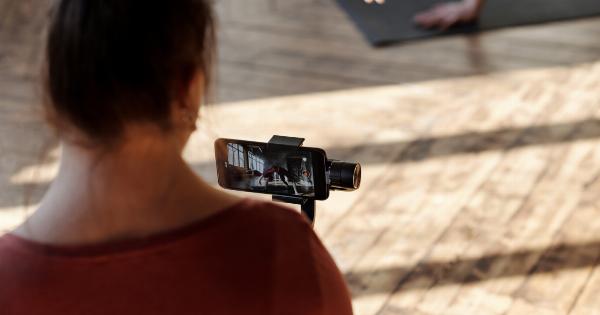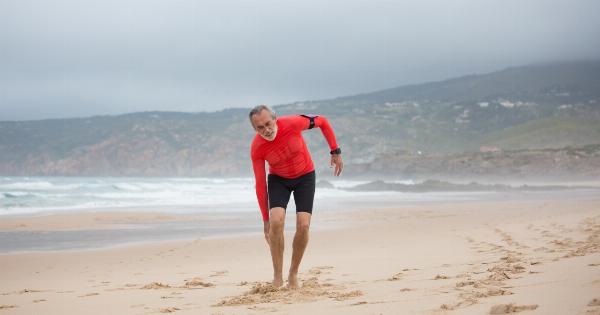Swimming and other water activities are an excellent way to stay in shape, relax, and enjoy some time in the sun. However, if you’re not careful, water activities can take a toll on your ears.
Water can cause ear wax build-up, infections, and other issues. Here are 30 tips for keeping your ears healthy on the water:.
Before Water Activities
1. Get your ears checked: Visit an audiologist before engaging in water activities, especially if you have a history of ear infections or swim-related ear issues.
2. Wear swim earplugs: Wear swim earplugs to avoid water from entering your ear canal. There are several types of earplugs available, including custom molded ones, over-the-counter disposable earplugs, etc.
3. Apply Ear Drops: Apply 2-3 drops of mineral oil in each ear to help repel water and prevent ear infections before you dive into the water.
During Water Activities
4. Use a swimming cap: Consider wearing a swimming cap to keep water from entering your ear canal.
5. Dry ears after swimming: Use a towel, hand dryer, or shake your head to avoid water from getting trapped in your ear canal.
6. Swim out of dirty water: Avoid swimming in dirty, polluted water to avoid irritation and infections.
7. Avoid shallow water: Swimming in shallow water increases your chances of hitting your head on rocks or other underwater objects, leading to ear injuries or infections.
8. Turn your head: Turn your head to either side while swimming to allow water to naturally exit your ear canal.
9. Hold your nose: Consider holding your nose and blowing air out of it while you swim to help clear your ears of water.
10. Take breaks: Take breaks from swimming and other water activities to give your ears time to rest and dry.
After Water Activities
11. Dry ears immediately: Dry your ears immediately after swimming or other water activities.
12. Tilt your head: Tilt your head to one side and gently pull your earlobe to encourage any residual water to drain out.
13. Clean ears: Clean your ears after swimming with a soft towel or a gentle ear cleaning solution. Do not use cotton swabs, as they can push earwax deeper into the ear canal.
14. Don’t put anything in your ears: Avoid inserting any objects into your ear canal, including fingers, cotton swabs, or other objects. These can lead to ear injuries or infections.
Preventing Ear Infections
15. Keep ears clean: Keep your ears clean and dry to avoid infections.
16. Minimize soap and shampoo: Minimize soap and shampoo exposure to your ear canal to avoid irritation and dryness.
17. Avoid irritants: Avoid irritants like hair dyes, hair sprays, perfumes, or other substances that can trigger ear infections.
18. Keep hands clean: Keep your hands clean to avoid introducing bacteria to your ears.
Exercises for Ear Health
19. Jaw exercises: Do jaw exercises like chewing gum, yawning, and opening your mouth wide to help relieve pressure in your ear canal.
20. Neck exercises: Consider neck exercises like tilting your head from side to side, rotating your neck to improve blood circulation to your ears.
21. Yoga exercises: Do yoga exercises that focus on your neck, head, and shoulder region to improve blood flow to your ears.
Preventing Wax Build-up
22. Avoid ear wax buildup: Avoid using cotton swabs to clean your ears, as this can push earwax deeper into your ear canal, causing blockages.
23. Use ear drops: Use over-the-counter ear drops to help soften ear wax and encourage drainage.
24. Do not self-clean: Do not attempt to self-clean or remove ear wax, as this can cause damage to your ear canal or eardrum.
Professional Cleaning
25. Consider professional cleaning: If you have an excessive ear wax buildup, consider getting a professional cleaning from a doctor or an audiologist.
26. Tympanometry: Consider getting a tympanometry test to check for ear infections, fluid buildup, or other ear issues.
Additional Tips
27. Protect your ears from cold weather: Wear warm ear covers to protect your ears from cold weather, as cold temperatures can lead to infection and other ear issues.
28. Avoid loud noises: Avoid loud noises, as they can damage your eardrums and cause hearing loss.
29. Take medication as prescribed: If your doctor prescribed medication for ear infections, take them as prescribed, and finish the full course of treatment.
30. Stay hydrated: Stay hydrated to avoid dehydration, which can cause ear infections, dryness, and other ear-related issues.




























